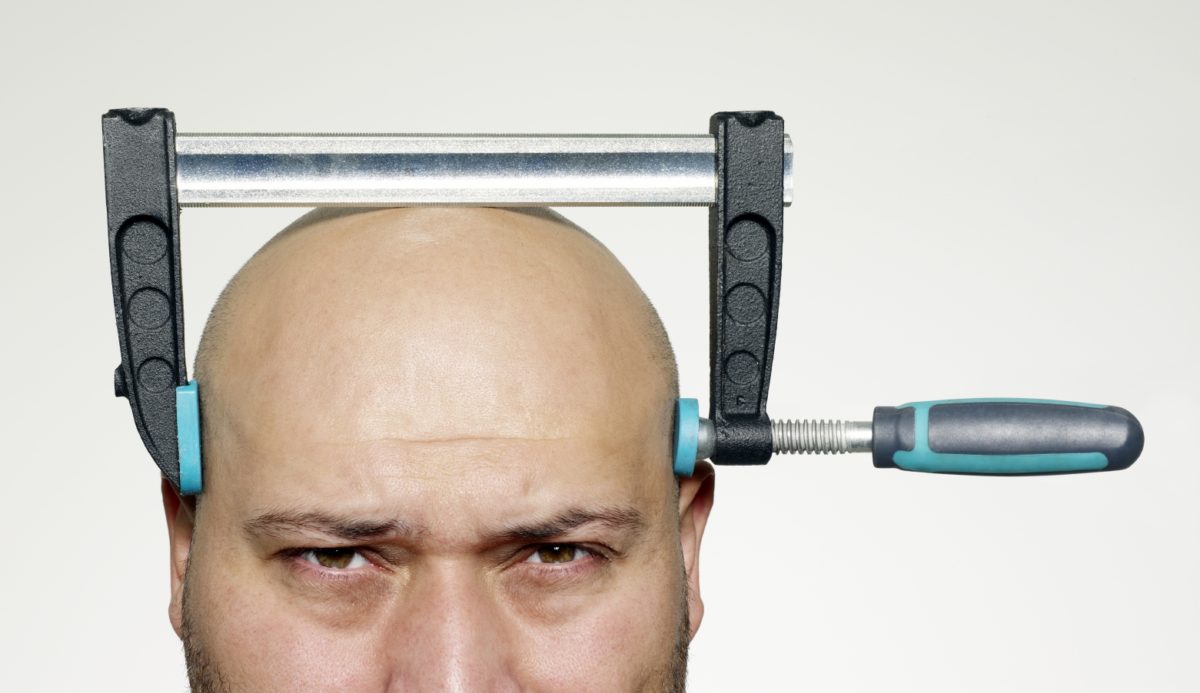Last spring I attended a wedding and heard an impressive pastor preach a stirring sermon on a powerful passage called The Kenosis (or The Emptying).
 It’s my favorite passage on humility:
It’s my favorite passage on humility:
Though he was in the form of God, he did not count equality with God a thing to be grasped, but emptied himself, taking the form of a servant, being born in the likeness of men. And being found in human form, he humbled himself becoming obedient to the point of death, even death on a cross. (Phil. 2:6-8)
The pastor urged the couple to be humble, to think first of the other person, and to give the remote to their spouse. He said humility is one virtue all religions agree on:
Confucius said, “Humility is the solid foundation of all virtues,” and the Quran says, “The servants of the Most Merciful are those who walk upon the earth in humility.”
He claimed to offer the key to marital bliss found in the gospels. He said the entirety of the good news can be summed up on one simple sentence: Be ye humble as Jesus was humble.
But equating the gospel with our humility is confusing cause and effect. The fruit of the gospel is humility, but chasing humility to find the gospel is squeezing bad news from the good news. We’re trying to get wine from a rock.
It doesn’t deal with our sickness
Our deepest inner-sickness is a sense of insignificance. We feel empty, like our lives don’t matter. We’re passionless and without purpose, a dewdrop in the ocean, dust in the wind.
That’s why Paul introduces that famous passage on humility with this verse: “Do nothing from selfish ambition or conceit.” The Greek word for “conceit” (keno-doxia) literally means “empty-glory.” It means, don’t let your emptiness drive how you live.
We think humility is a low sense of self and pride is a high sense of self (as in, “he is full of himself”), but this is the exact opposite of spiritual reality. C. S Lewis says that, “Pride is ruthless, sleepless, unsmiling concentration on the self.” Our emptiness sends us screaming, scratching, and clawing to fill our inner-void.
Even our futile attempts at humility commits our unsmiling concentration back on ourselves.
In the movie Amadeus, the aging composer Salieri is in living hell. Not because he’s hated—he could deal with enmity. His grief is inconsolable because he’s forgotten . . . and empty.
Pride is not knowledge of our giftedness—some of the most gifted people I know are the most humble (just look at Jesus). The people of highest pride are the people most concerned with themselves. In other words, the people who feel the most empty.
It’s hard to work on humility
We can practice generosity. Try it for a week or a month (a lifetime would be better). Over time you’ll become more generous (and more gentle and patient). But humility is the single virtue—among all the virtues in the world—that practice makes imperfect.
Because, “Humility is not thinking less of yourself, but thinking of yourself less” (C. S. Lewis). Even attempting humility directs our attention to ourselves. Practice humility for a day or a week (a lifetime is worse). Soon you’ll start noticing, “Wow, I’m getting humble.” We’re trying to squeeze grapes out of wine.
So what are we to do?
Jonathan Edwards noticed that there are two kinds of virtue, counterfeit and genuine. Moral reformation creates counterfeit virtue while spiritual transformation creates real virtue. Moral reformation squeezes the heart while spiritual transformation melts the heart.
Moral reformation looks to the rules while spiritual transformation looks to the ruler.
That’s why Paul tells us to look to Jesus. Jesus emptied himself of his glory; but he emptied himself by pouring his glory into our emptiness. On the cross he was forgotten; forgotten so that you and I will be remembered forever.
I’m in favor of humility. My family and friends would live more happily if I lived more humbly.
But I’ll never be more humble by working on myself, only by looking at Jesus. That’s the secret of the gospel; not personal moral reformation, only the spiritual transformation of seeing Jesus; not looking to the rules but the ruler.
At least, in my humble opinion.
Sam

 Let’s Rethink the Way We Think
Let’s Rethink the Way We Think
Another great post, Sam! I found the Desert Father’s distinction of vainglory and pride to be a helpful one, and lament how Gregory the Great collapsed combined them under the single label of pride in his “7 Deadly Sins” schema. I understand vainglory (kenodoxia) to be a pathological need to be liked, and has it’s silly variants (vanity) and more subtle ones (people pleasing). Pride, on the other hand, is more self-contained; it considers itself better than others and so doesn’t care what they think. Bernard of Clairvaux’s 12 Steps of Pride is a (sadly familiar) diagnostic description of the progress of this soul-disease. Thanks for getting this vital information out there!
Hey Tom,
I really like your critique of mixing “vainglory” with “pride.” I half like the mix and I half dislike it.
But I also like Lewis’s sense that pride primarily is self-focus; not just arrogance (which is primarily, not exclusively, reserved for the successful). Pride can we thriving among the less successful but overly self-centered.
Thanks for the reminder of Bernard of Clairvaux’s 12 Steps of Pride. I just made a “to do” to read it again.
Sam